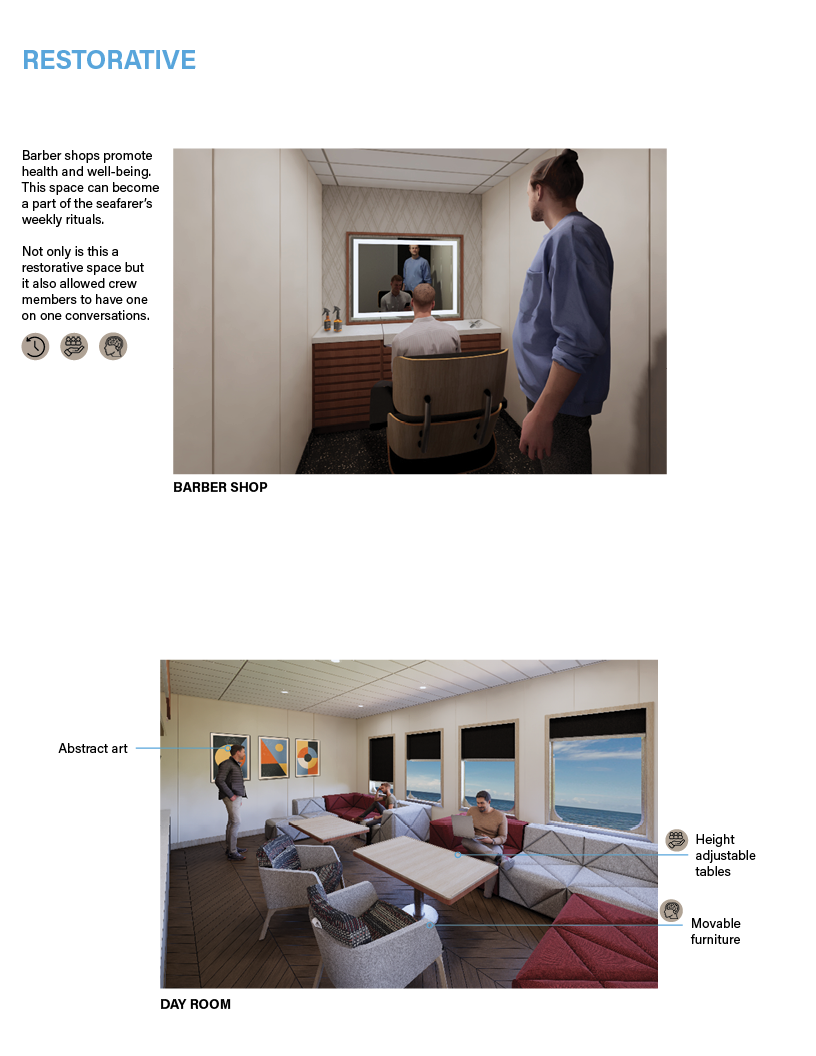Seafarers Mental Health








































“Spotlighted during the pandemic as a vital invisible workforce, Seafarer’s lives are quite different than their peers on land. Moreover, the days when seafaring was a prestigious profession were a long time ago. The maritime industry is facing a shortage of skilled workforce, due to the challenging conditions of life on the sea. Even though regulations exist to make life better, seafaring is still burdened by various well-being-related issues. Not limited to but including isolation, confinement, hierarchy issues, low habitability standards, multicultural crews, fatigue, and limited personal space. Due to these well-being-related issues, this paper applies well-researched theories typically applied in healthcare settings due to the similar characteristics of institutionalization. This paper proposes not only improving these spaces but adding others and separating them by function, or sleep, restoration and social. The results of the research demonstrate that the quality of the restorative living spaces could be a predictor of job performance, the seafarers’ ability to stay alert, and job satisfaction. Altogether, this research reminds maritime organizations of the importance of seafarer’s well-being in relation to the reduction of catastrophic accidents to marine environments and human life.”
- Savannah Hinck
